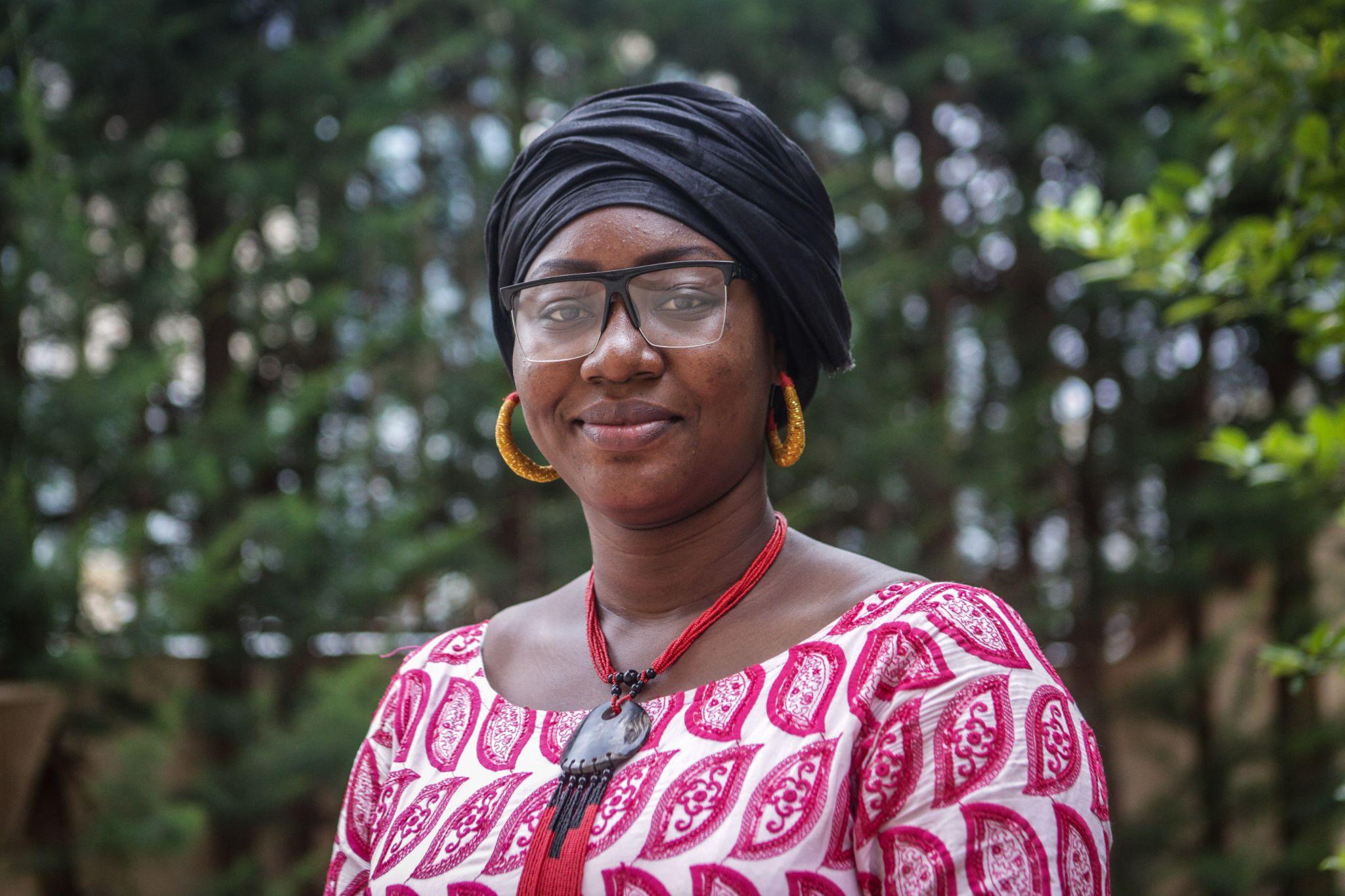
KADIA
“It was as if we were going forward blindfolded.”
"I realized that we journalists were destroying our country without knowing it. When we communicate about the conflict by widening the gap between communities, we divide the whole country," says Kadia, a 25-year-old journalist in Bamako.
This awareness is recent. Thanks to the “Tabale Kunkan” project, funded by the Canadian government, Kadia received training in conflict-sensitive journalism and fact-checking. Immediately, the issue of impartiality resonated with her. "If you look at the news, there are only ever testimonies representing one side, never those of the people who took up arms. But the day you decide to ask them for an interview, they will refuse. They will know that you are not neutral.”
Kadia then learns to question, to deconstruct what she has learned so far. "We weren't used to dealing with conflict. So when it happened, no one alerted us to how we reported the news. It was as if we were going forward blindfolded. The training helped lift the blindfold so we could see clearly."
As a result, what Kadia chooses to keep quiet now matters as much as what she communicates. "To write that the attackers would be from this or that community is already affirming it. People trust us. We have to be careful what we put in their heads."
Here, respecting anonymity can also save the lives of the people providing the information. "It is increasingly difficult to get sources in the center and north. There have been times journalists mentioned their names in their articles, and they have been killed in retaliation."
Fortunately, the training has also allowed Kadia to expand her network of reliable sources. Indeed, the project brings together journalists from all parts of the country. "This has allowed me to create a strong network. It's a relief because we know that they have also been trained and that they won't just give us part of the information."
Finally, Kadia doesn't hesitate to share her expertise with those who haven't had the chance to take the training. "I show other journalists how to use the different fact-checking apps." And that goes for aspiring journalists, too. "My dad loves to share all the information he gets. So I show him how to pay attention to details, for example, with images. Is that the Malian uniform in that picture? Who is the source? If there's one thing I've learned, it's to question the intent behind every piece of information, no matter where it comes from."
In the journalism community, as well as in the peacebuilding field, Kadia's dedication does not go unnoticed. META recently invited her to a digital peacebuilding training in Burkina Faso. As a result, Kadia is now expanding her networks across borders as she continues to increase the reach of her stories, this time aimed at bridging divides. "I feel like I can now make a difference. Journalists are key players who also have the power to build."